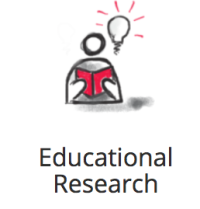We have been studying bladder cancer in a mouse model of the disease and we are seeking to understand the molecular features of the mouse models as they relate to human bladder cancer.

We have been studying bladder cancer in a mouse model of the disease and we are seeking to understand the molecular features of the mouse models as they relate to human bladder cancer.

Analyze data from one or more of the following Library Applications/Systems and create visualizations that highlight the most important findings related to our goal of supporting self-directed learning.

Finding the exact counterpart galaxies to merging black hole binaries detected in gravitational waves is one of the most pressing problems in cosmology. The redshift of the host galaxy (which has to be measured from its electromagnetic emission) combined with the luminosity distance to the gravitational wave source allows for a direct measurement of the expansion history of the Universe, an approach commonly referred to as the ‘Standard Siren’ method. To date, there are no proven techniques for accomplishing this goal.

Injury, such as falls, motor vehicle crashes, and drug overdose, is a major source of morbidity and mortality. The interaction between injury and disease is complex and mutually causative. For instance, patients with Alzheimer’s Disease or Parkinson’s Disease are known to be at heightened risk of hip fracture from falls and in turn injurious falls among these patients can drastically alter the trajectory of the disease. So far, research on injury-disease interaction has been scant and fragmented. The proposed project is aimed at uncovering the gestalt of the relations between different injuries and different diseases through a data science approach.

The Federal Communications Commission (FCC) and the Census regularly publish data on U.S. Internet availability, performance and use, at granularities from census block to county and state. The project goal is to answer questions based on the available data, such as “How reliable is Internet access?”, “Who is deploying fiber where?”, “Can we predict reliability of different technologies?”, “Can we predict the deployment of fiber?”

When a colorectal cancer has grown through the wall of the colon or rectum and into other adjacent tissues or organs, it is identified as a T4 primary tumor. If there is no evidence of distant metastasis then it is labeled a locally advanced tumor. Such locally advanced tumors account for approximately 5-15 % of new colorectal cancers. Surgery remains the principal treatment modality for patients with locally advanced colorectal cancer. Studies have demonstrated planned en bloc or multivisceral resections rather than intraoperative assessment of margins more likely results in R0 resections leading to better local control and long-term survival. However, the decision-making for a surgeon confronting a T4 colorectal cancer is challenging because surgery related mortality rates after multivisceral resections are reported up to 12%.

The goal of this project is to develop and validate a deep neural network that predicts a child’s emotion and cognition. DSI scholars will implement 3D convolutional neural networks on brain imaging data from thousands of children to predict cognitive, emotional, and socio-developmental variables. Statistical evaluation of the model performance will be conducted. The scalable deep neural network analysis will help find brain underpinnings of cognition and emotion.
